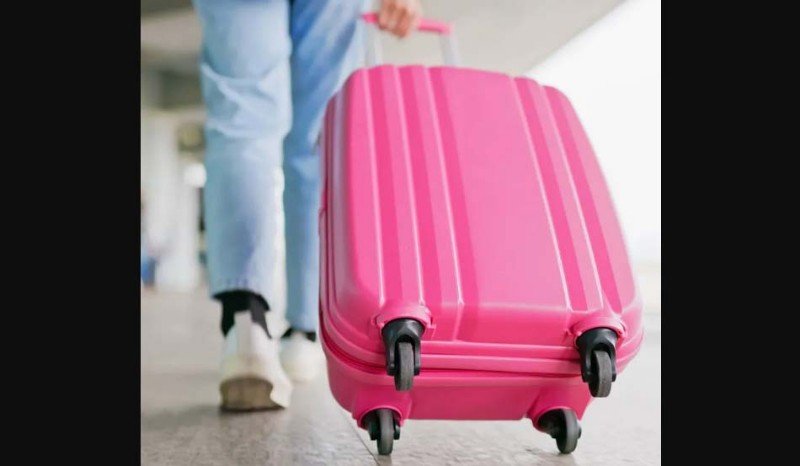
Determined to avoid baggage fees for his holiday to Pisa, Benjamin Till trawled several different shops armed with a tape measure in search of the right suitcase.
Eventually, he found a case within the dimensions EasyJet allows for a free underseat bag – or so he thought.
When Mr Till arrived at London Gatwick Airport in December 2023, he discovered those measurements included wheels, meaning his bag was deemed slightly too big.
He protested, but eventually paid £48 to bring the bag on board. He says he was told to remove the wheels for the way back – which he did.
But at the gate on his way home, he was told the suitcase was still too large, so he sat on the floor, unpacking his dirty underwear and souvenirs into a bin bag.
“I don’t mind admitting that I actually burst into tears because it was so humiliating,” he says.
An EasyJet spokesperson told the BBC its ground crew had to ensure non-checked bags were within maximum dimensions “to safely and securely fit”, and that rules were made clear to customers when they booked.
Stories of passengers caught out by baggage rules they feel are inconsistent or confusing are common, with many customers complaining or seeking clarity from budget airlines on social media.
Different airlines have varying rules on the acceptable size and weight of an underseat personal item or an overhead cabin bag, with some charging customers to bring the latter.
For people who fall foul of these rules, some airlines charge hefty fees to upgrade a bag from a free personal item to an overhead cabin bag at the airport gate, or to stow an oversized cabin bag in the hold.
Passenger confusion has prompted the European Union’s largest consumer group to push for fairer and more consistent hand luggage rules, and caused one government to start cracking down on airlines over bag charges.
The EU is now looking at changing its laws – changes which would also affect UK passengers who are travelling to or from an EU destination using an EU-based airline.
On Thursday, EU transport ministers proposed standardised sizing for free underseat baggage on EU airlines, among other air travel and passenger rights’ changes – meaning this could become EU law if their position is accepted by the European Parliament.
Budget airlines say their baggage policies comply with the law while keeping fares low, but they have been facing mounting pressure and calls for change.
What could change, or not, for hand baggage?
EU transport ministers proposed that passengers should be guaranteed one free personal item, measuring up to 40x30x15cm (including wheels and handles) – or which could reasonably fit under a plane seat.
These rules would apply to EU-based airlines (such as Ryanair, Wizz Air and EasyJet), including when they are carrying passengers from a non-EU country like the UK to an EU country and vice-versa, but not third-party airlines.
New rules would add clarity to an EU court ruling from 11 years ago, which stated hand baggage should not be subject to an extra fee, provided it met “reasonable” weight and dimensions, but did not say what reasonable was.
Currently, Ryanair allows a free carry-on bag of 40x20x25cm, while EasyJet’s dimensions for a free bag are a more generous 45x36x20 cm, including wheels and handles.
The ministers’ proposal was silent, however, on the issue of whether airlines could charge for overhead cabin bags – meaning that if their proposal was adopted into law, the current situation would not change and airlines could keep charging for that kind of hand baggage, which some in Europe have lobbied to stop.
The European Consumer Organisation, BEUC, an umbrella group for 45 independent consumer organisations from 32 countries, believes Thursday’s proposals do not go far enough, and legitimise “charging for reasonably sized hand luggage”.
In November, five airlines were fined a total of €179m (£150m) in Spain for “abusive” practices, including charging for hand luggage. Spain’s Consumer Rights Ministry said at the time that it planned to ban charging extra for carry-on luggage and other policies.
The airlines had said they would appeal the decision.
 Weekly Bangla Mirror | Bangla Mirror, Bangladeshi news in UK, bangla mirror news
Weekly Bangla Mirror | Bangla Mirror, Bangladeshi news in UK, bangla mirror news







